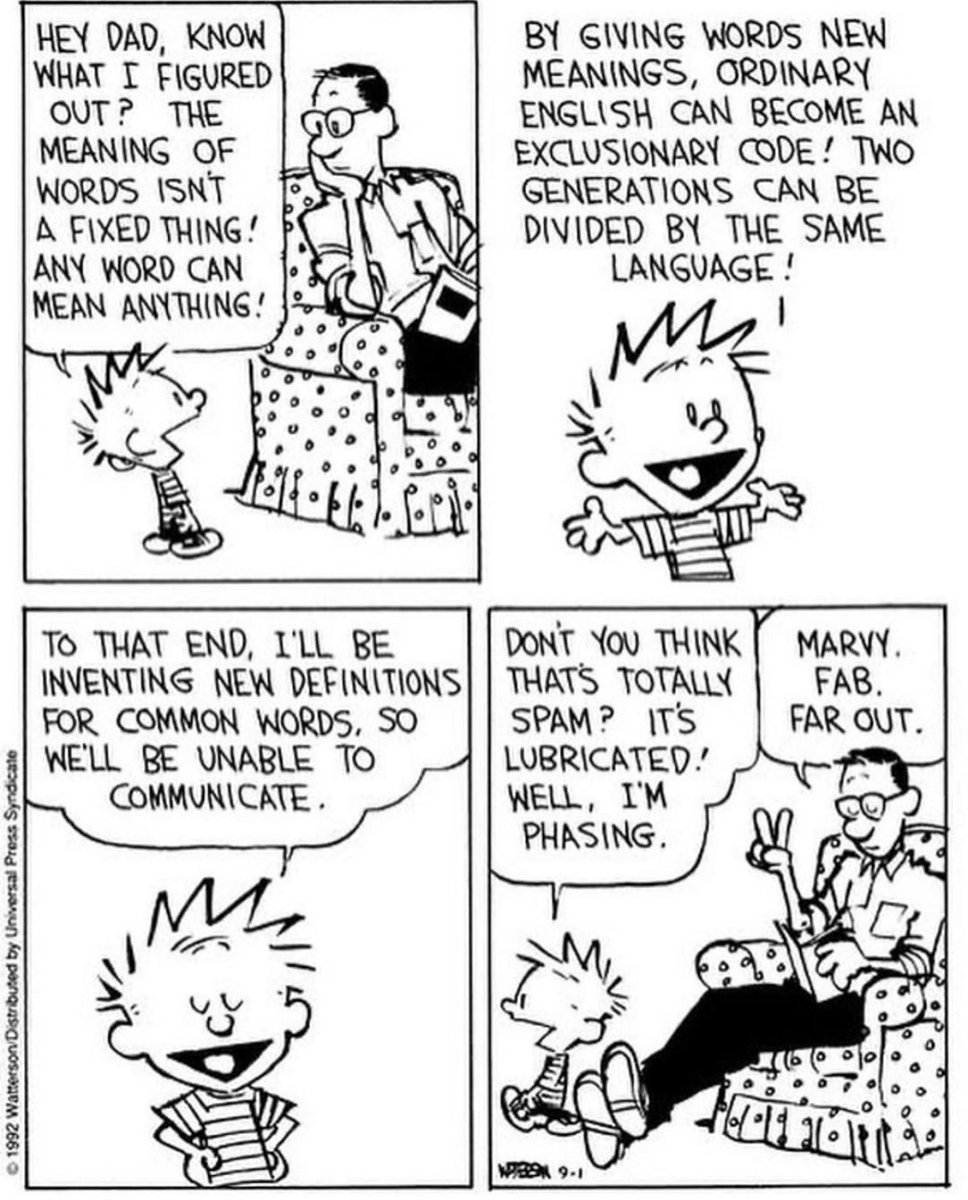Every generation has slang, but Gen Alpha’s has a particularly unhinged quality, some parents say. Still, experts say their bad rep isn’t totally deserved.
In the beginning, there was “skibidi.”
It appeared abruptly in the lexicons of kids under 14 — the first slang term unique to Generation Alpha. Parents’ ears perked up as they began to hear it around the dinner table. It could mean bad, cool, or nothing at all, their kids explained. Then a dozen more incomprehensible terms followed suit.
Gen Z’s “slay” and “tea” are officially vintage, giving way to “sigma,” “gyatt” and “fanum tax.”
Everyone’s getting whiplash.

This is not even vaguely new.
The difference is the rate at which new slang is born.
The primary difference is that the slang ends up born (and abandoned) on the national and international levels, whereas in times past slang would become lodged in the regional vernacular first, and some of it would never move ‘up’ to replace old slang. In a sense, then, there was more slang in days past - it just was less ‘standardized’.
I kinda get that. We called anime “Japanimation” in the 80s. Nothing racist there for y’all haters, just what we called it. But you’re right, never heard that term outside my local group.
Every generation has this article published about them, congratulations, you are officially old and out of touch.
Dividing us into generations is a way to make us feel segmented and separated. The concept of generations is made up, we shouldn’t feel tribal about the era we were born in.
They’ll go away soon enough. It’s just been dialed up to 11 through media like tiktok.
I’ve been watching Language Jones lately, and I think he’s got a good and academically well-informed take on this topic.
Quit taxing their gig so hard-core cruster.
Reminds me of Nadsat from the movie, A Clockwork Orange. Haven’t read the novel yet.
The book is amazing.
There’s a lot more in the novel that isn’t in the film.
That said, the copy that Kubrick used to adapt into the film did not have the final chapter of the novel (it was an edited down American version) and it is such a better ending than the book.
Slang is stupid, film at 11:00. This is just old people complaining about young people. We’ve been doing this for literally thousands of years. It’s not newsworthy, not even in in the modern age of 6 second attention spans.
My 14-year-old isn’t especially slangy, but occasionally she asks me if I’ve heard some term or other, and I invariably haven’t. Most recently, it was “Scene,” which is apparently some sort of fashion aesthetic.
“Scene” was around when I was in middle and high school around 10 years ago.
They were like the preppy goth kids, who listened to Avril Lavigne and such.
Edit: there’s also a Hollywood Undead song that has the lines “wake up, shave beard, grab beer, put on some scene gear”
I’m 47 years old. I have never even heard of Hollywood Undead.
And Harry don’t mind if he don’t make the scene. He’s got a daytime job, he’s doing all right.
Avril Lavigne? Of Lavigne and Shirley? ;)
deleted by creator
I had totally forgotten this 6 month old post but sure.
deleted by creator
After having thoroughly learned the language of their parents, around 8 or maybe 12 years old, children are good at learning languages and they play at doing better than their parents … inventing things … testing them.
They want to know that they are good enough and to prove this to themselves they have to do better in some way than their parents.Does “tea” mean dinner?
NBC News - News Source Context (Click to view Full Report)
Information for NBC News:
MBFC: Left-Center - Credibility: High - Factual Reporting: High - United States of America
Wikipedia about this sourceSearch topics on Ground.News
https://www.nbcnews.com/news/gen-alpha-kids-parents-brainrot-language-rcna162227




